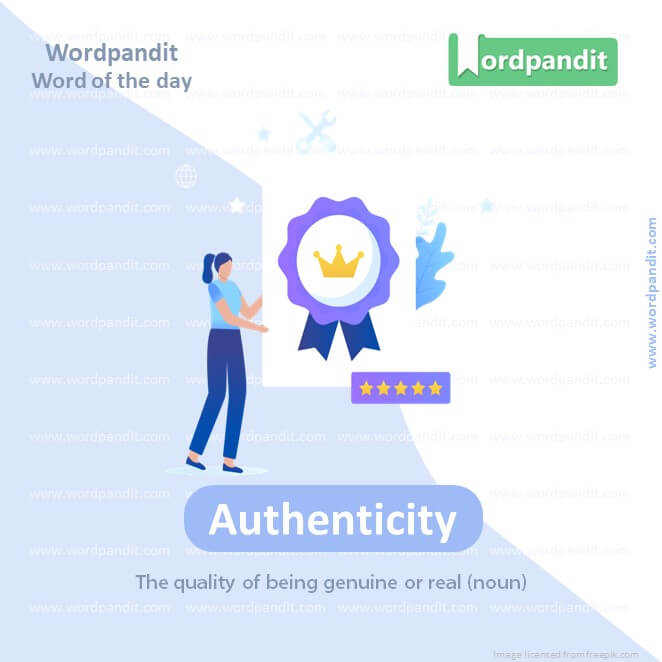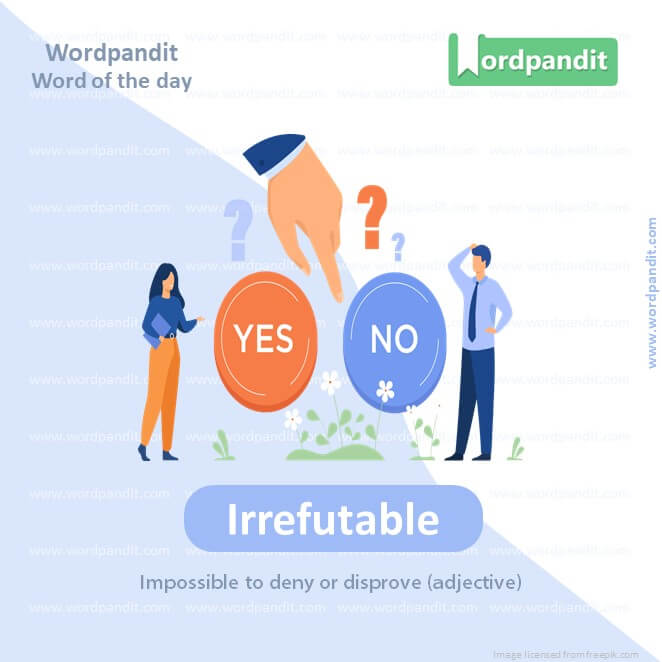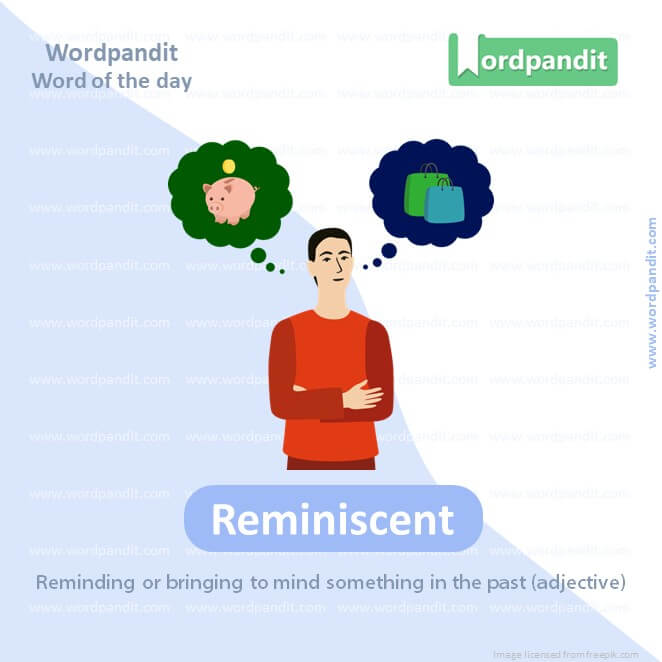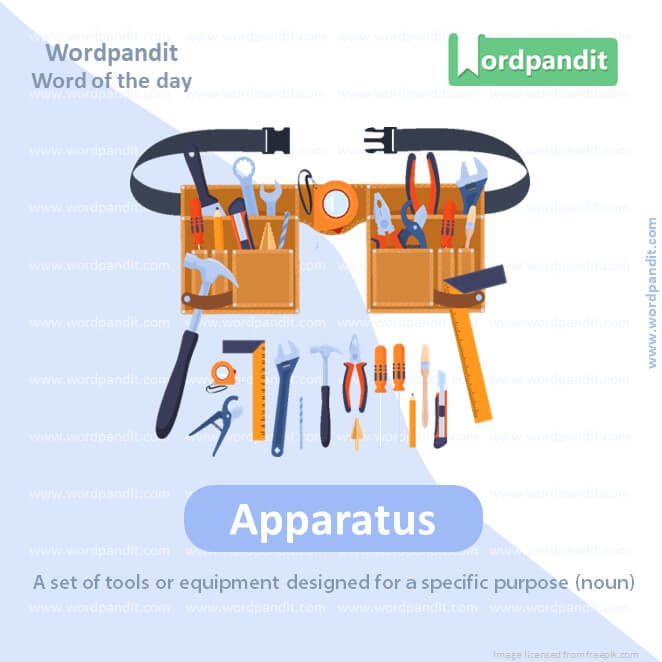Daily Vocabulary Words: List of Daily Used Words
Hi there. Welcome to this special section @ Wordpandit.
Our endeavour here is straightforward: highlighting important daily vocabulary words, you would encounter in The Hindu. This is your repository of commonly used words; essentially, we are posting a list of daily used words. Hence, this has significant practical application as it teaches you words that are commonly used in a leading publication such as The Hindu.
Visit the website daily to learn words from The Hindu.

WORD-1: Authenticity
CONTEXT: Mr. Dubey by questioning the authenticity of his educational qualifications and disclosures in his election nomination papers.
SOURCE: The Hindu
EXPLANATORY PARAGRAPH: Authenticity is like a stamp of realness. When something has authenticity, it means it’s the real deal and not a copy or fake. Think of your favorite toy that’s special and unique — that’s because it’s authentic!
MEANING: The quality of being genuine or real (noun).
PRONUNCIATION: aw-then-TIS-i-tee
SYNONYMS: Genuine, Real, Legitimate, True, Verifiable, Credible, Original
USAGE EXAMPLES:
1. The signature’s authenticity was verified by an expert.
2. Everyone admired the authenticity of the handmade crafts.
3. The document had an official seal proving its authenticity.
4. It’s important to check the authenticity of online reviews before buying.

WORD-2: Defamatory
CONTEXT: She has demanded a public apology from both Mr. Dubey and Mr. Dehadrai for making “defamatory and malicious claims”.
SOURCE: The Hindu
EXPLANATORY PARAGRAPH: Defamatory is when someone says mean and untrue things about someone else. Imagine telling a false story about a friend that makes them look bad — that’s defamatory.
MEANING: Harmful and untrue statements about someone, damaging their reputation (adjective).
PRONUNCIATION: de-FAM-a-toh-ree
SYNONYMS: Slanderous, Libelous, Calumnious, Malicious, Insulting, Derogatory, Pejorative
USAGE EXAMPLES:
1. The celebrity sued the magazine for defamatory remarks.
2. Posting defamatory comments online can lead to legal action.
3. The article was taken down due to defamatory content.
4. He warned her against making defamatory statements.

WORD-3: Irrefutable
CONTEXT: He said the advocate’s letter provided irrefutable evidence.
SOURCE: The Hindu
EXPLANATORY PARAGRAPH: Irrefutable is when something is so true that nobody can say it’s wrong. Like when you know the sun rises in the morning; that’s irrefutable because everyone sees it!
MEANING: Impossible to deny or disprove (adjective).
PRONUNCIATION: eer-eh-FYOO-tuh-bul
SYNONYMS: Undeniable, Indisputable, Incontrovertible, Unarguable, Conclusive, Unassailable, Unquestionable
USAGE EXAMPLES:
1. The evidence was irrefutable, proving the case.
2. The teacher presented irrefutable facts in the lesson.
3. Her logic was so strong, it seemed irrefutable.
4. The video provided irrefutable proof of the incident.

WORD-4: Reminiscent
CONTEXT: Shri Darshan Hiranandani – by asking Parliamentary Questions, which is reminiscent of the ‘Cash for Query’ episode of 12 December, 2005,” he wrote.
SOURCE: The Hindu
EXPLANATORY PARAGRAPH: Reminiscent is when something reminds you of something else. Like when you smell a pie and it’s reminiscent of a holiday because it reminds you of your grandma’s house during celebrations.
MEANING: Reminding or bringing to mind something in the past (adjective).
PRONUNCIATION: rem-in-ES-ent
SYNONYMS: Evocative, Suggestive, Recalling, Reflective, Echoing, Redolent, Memory-filled
USAGE EXAMPLES:
1. The song was reminiscent of their summer adventures.
2. The painting was reminiscent of a famous artist’s style.
3. The decor in the cafe was reminiscent of old Paris.
4. The aroma from the kitchen was reminiscent of home.

WORD-5: Apparatus
CONTEXT: This act, if proven, not only threatens data integrity but can set a precedent, endangering the nation’s overall security apparatus,” he added.
SOURCE: The Hindu
EXPLANATORY PARAGRAPH: Apparatus is a fancy word for a tool or a set of equipment used for a special job. Like how you might have a special apparatus (like a kit) for painting or drawing.
MEANING: A set of tools or equipment designed for a specific purpose (noun).
PRONUNCIATION: ap-uh-RAT-us
SYNONYMS: Equipment, Device, Instrument, Machine, Contraption, Tool, Gear
USAGE EXAMPLES:
1. The science lab had various apparatus for experiments.
2. The gymnast practiced on the apparatus every day.
3. They set up a filming apparatus to make a movie.
4. The apparatus was designed for deep-sea exploration.
WORD-6: Privy
CONTEXT: I am not aware or privy to the full facts or background on this — but if it is true then it’s a terrible travesty and misuse of PQs,” he wrote in a post on X.
SOURCE: The Hindu
EXPLANATORY PARAGRAPH: Privy means you know a secret or special information that not everyone knows. Like when you and your best friend share a special handshake — only you two are privy to it!
MEANING: Having special knowledge or being part of a secret (adjective).
PRONUNCIATION: PREE-vee
SYNONYMS: Informed, Aware, Acquainted, In-the-know, Knowledgeable, Apprised, Briefed
USAGE EXAMPLES:
1. He was privy to the confidential plans.
2. Only a select few are privy to the hidden chamber.
3. As a trusted advisor, she was privy to many secrets.
4. They held a meeting, but only senior members were privy to the details.
WORD-7: Corroborates
CONTEXT: Mr. Dubey without naming him, said the development “corroborates” the company’s statement made on October 9
SOURCE: The Hindu
EXPLANATORY PARAGRAPH: Corroborates is a way of saying that someone or something supports or backs up what someone else has said. Like when you tell a story and your sibling says, “Yes, that’s true!” — they are corroborating your story.
MEANING: To support or confirm a statement, theory, or finding with evidence (verb).
PRONUNCIATION: kuh-ROB-uh-rates
SYNONYMS: Confirm, Verify, Validate, Substantiate, Back up, Attest, Authenticate
USAGE EXAMPLES:
1. The video footage corroborates her account of events.
2. The scientist had data that corroborates the new theory.
3. Witness testimonies corroborated the defendant’s claim.
4. The research corroborates the importance of a balanced diet.
WORD-8: Besmirch
CONTEXT: the lawyer’s complaint reveals that this arrangement to besmirch the reputation and interests of the Adani Group and our Chairman Mr. Gautam Adani has been in place since 2018.
SOURCE: The Hindu
EXPLANATORY PARAGRAPH: Besmirch means to make something look bad. Imagine if you had a beautiful white dress and you accidentally spilled juice on it. The dress is now besmirched with a stain.
MEANING: To damage the reputation or appearance of something or someone (verb).
PRONUNCIATION: beh-SMURCH
SYNONYMS: Tarnish, Stain, Sully, Soil, Defile, Smear, Discredit
USAGE EXAMPLES:
1. They tried to besmirch her reputation with false rumors.
2. The mud besmirched his new shoes.
3. One scandal could besmirch the company’s image.
4. They attempted to besmirch the integrity of the leader.
WORD-9: Ransacked
CONTEXT: Marsh and Labuschagne steadied the ship with a 57-run stand. Marsh was aggressive against pace and spin as Australia ransacked 64 runs in the first PowerPlay — 45 of them coming off the opener’s blade.
SOURCE: The Hindu
EXPLANATORY PARAGRAPH: Ransacked is like when you search everywhere in a room, turning things upside down, to find something you’ve lost. Imagine looking for a missing toy and searching every corner — that’s like ransacking!
MEANING: To search thoroughly and messily (verb).
PRONUNCIATION: RAN-sakt
SYNONYMS: Pillage, Plunder, Loot, Raid, Rob, Search, Scour
USAGE EXAMPLES:
1. The burglars ransacked the house looking for valuables.
2. She ransacked her room trying to find the lost earring.
3. Pirates ransacked the village in search of treasure.
4. The drawers had been ransacked, with papers everywhere.
WORD-10: Miscued
CONTEXT: Josh Hazlewood and Pat Cummins during a 125-run opening stand before Warner’s brilliance in the field gave Australia its first success as Nissanka miscued a short ball from Cummins.
SOURCE: The Hindu
EXPLANATORY PARAGRAPH: Miscued means to make a mistake, especially when trying to do something. Think of trying to hit a ball with a bat but missing it — that’s a miscue.
MEANING: To make an error, especially in judgment or performance (verb).
PRONUNCIATION: MIS-kewed
SYNONYMS: Err, Blunder, Miscalculate, Misjudge, Misfire, Fumble, Stumble
USAGE EXAMPLES:
1. He miscued the final shot, causing his team to lose.
2. The actor miscued his line during the performance.
3. I miscued when I thought the meeting was today.
4. The pianist miscued a few notes during the recital.
Vocabulary
Language is a confluence of thoughts, emotions, and experiences that find vibrant expression through words. In this spectrum, ‘vocabulary’ shines as a critical aspect that shapes and directs our language proficiency. It offers depth, nuance, and clarity to our expressions. However, mastering ‘vocabulary’ is an art that requires a strategized approach.
An intensive strategy for learning ‘vocabulary’ goes beyond the limiting precincts of memorization. Instead, it nudges learners towards comprehension and application. To understand ‘vocabulary’, take a step forward from traditional textbooks and classroom sessions, and embrace the vast world of books, articles, podcasts or digital content in the language you are learning. This step allows you to understand words in context, see how they are used in different situations, and absorb words as part of the natural flow of language.
As you journey through ‘vocabulary’, remember that this expedition should not be a race. Rather, it’s a marathon where pacing yourself is pivotal to long-term success. Learning a few words each day and consolidating your knowledge through regular revision tends to be more effective, as it prevents cognitive overload and promotes solid retention.
Interactive learning tools can provide valuable support in assimilating ‘vocabulary’. Use of flashcards, language-learning apps, or memory-enhancing software can make this process more engaging and effective, reinforcing the ‘vocabulary’ in your memory.
Lastly, practice is an incontrovertible part of mastering ‘vocabulary’. Utilize the learnt vocabulary in your daily conversations, write-ups, or presentations to ensure an active application. Doing this fosters recall and cements understanding.
In summation, learning ‘vocabulary’ is a journey that should be embraced with an integrated approach, where understanding and application are the key elements. By engaging with diverse learning resources, pacing the learning process, employing interactive learning tools, and practicing regularly, the journey of mastering ‘vocabulary’ becomes a fulfilling and enriching experience.










